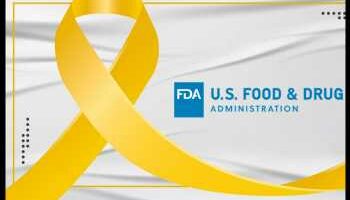
FDA Probes Serious Risk Of Secondary Cancer Following CAR T Cell Therapies
The Food and Drug Administration or FDA said it is investigating serious risk of T-cell malignancies following BCMA or CD19-directed autologous Chimeric Antigen Receptor or CAR T cell Immunotherapies.
The overall benefits of these products continue to outweigh their potential risks for their approved uses, the agency noted.
According to the American Cancer Society, CAR T-cell therapy is a way to get immune cells called T cells (a type of white blood cell) to fight cancer by genetically altering them in the lab so they can find and destroy cancer cells.
The FDA said it is evaluating the need for regulatory action after receiving reports of T-cell malignancies, including CAR-positive lymphoma, in patients who received such treatment. Reports were received from clinical trials and/or postmarketing adverse event or AE data sources.
FDA has determined that the identified risk of T cell malignancies with serious outcomes, including hospitalization and death, is applicable to all currently approved BCMA-directed and CD19-directed genetically modified autologous CAR T cell immunotherapies. T-cell malignancies have occurred in patients treated with several products in the class.
CAR T-cell therapies are approved by the FDA to treat some kinds of lymphomas and leukemias, as well as multiple myeloma. CAR T-cell therapy is typically used after other types of treatment have been tried.
According to the agency, currently approved CAR T-cell therapies include Abecma (idecabtagene vicleucel); Breyanzi (lisocabtagene maraleucel); Carvykti (ciltacabtagene autoleucel); Kymriah (tisagenlecleucel); Tecartus (brexucabtagene autoleucel); and Yescarta (axicabtagene ciloleucel).
The FDA urged patients and clinical trial participants receiving treatment with these products to be monitored life-long for new malignancies.
If a new malignancy occurs following treatment with these products, they are asked to contact the manufacturer to report the event and obtain instructions on collection of patient samples for testing for the presence of the CAR transgene.
For More Such Health News, visit rttnews.com
Source: Read Full Article